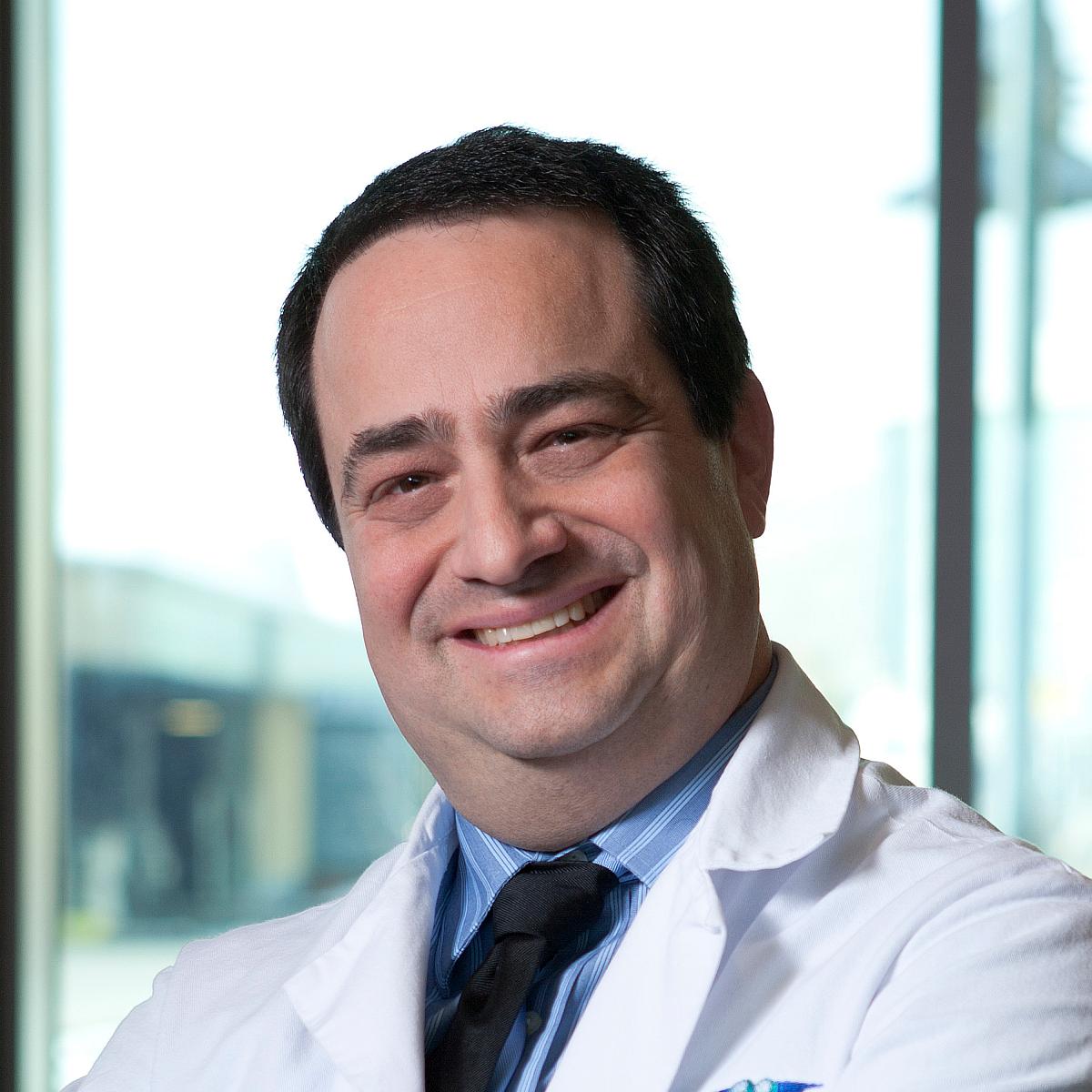
Genitourinary Cancers Center
The Genitourinary (GU) Cancers Center at Huntsman Cancer Institute (HCI) brings together clinical and research teams that specialize in these cancers:
- Adrenocortical Cancer
- Bladder Cancer
- Kidney Cancer
- Prostate Cancer
- Testicular Cancer
- Penile Cancer
Focus of the Center
Our work deals with the entire spectrum of GU cancer care and research
Identifying risk factors
We study the genetics of GU cancers in families and groups. The Utah Population Database and a large bank of tissue samples are our best resources in this research. We also use the latest technology to discover more about these cancers, down to the molecules that make them up. Our research aims to show how family medical history and factors from the environment can raise the risk of getting GU cancers.
Our genetics expertise helps us find out who has a higher risk and needs special care to prevent cancer. We have a Prostate Cancer Risk Clinic for men who have a high risk to get these cancers. Our doctors and genetic counselors create personal cancer screening plans. They also provide follow-up care.
HCI is the only clinical care center for people with Von Hippel Lindau syndrome (VHL) in the northwestern United States. VHL is an inherited disease that causes non-cancer tumors and cysts in many body locations. It also increases the risk for kidney cancer. Our clinical center lets VHL patients get all screening and treatment in one place with our VHL experts. We help patients find and participate in research studies and clinical trials for VHL, as well as other diseases.
Learning new ways to find and treat GU cancers
Cancers release substances called molecular markers into blood, other body fluids, or tissues. These markers can confirm the presence and type of cancer without surgical biopsies. Researchers in the GU Cancers Center are identifying these markers for all GU cancers, in particular prostate and bladder cancers.
For example, in about half of men who have prostate cancer, their tumor cells have DNA changes that rearrange two genes. These rearranged genes can signal how fast the cancer may grow and spread. Center members have already found a fast, simple test to measure how these two genes work in tumors. Now they are comparing test results from prostate cancer tumors to treatment outcomes of past patients. The results will show whether doctors can use this test to predict which prostate cancers are likely to be life-threatening. Then they can personalize treatment plans to meet each patient’s needs based on these cancer DNA tests.
Finding new treatments
Clinical trials for new drugs and treatment methods are the heart of our GU Cancers Center research group. We have many open clinical trials for patients with GU cancers.
For instance, we are currently participating in a multisite study evaluating the role of treating the prostate (with surgery or radiation) in men with metastatic prostate cancer. Conventional treatment to the prostate has been reserved for men with cancer that has not spread from the prostate. Previous research suggested that treating the prostate simultaneously with the metastatic sites will lead to longer control of the disease.
We are also studying the optimal treatment combination for men with metastatic prostate cancer. Currently, there are multiple approved treatment options, but no studies have directly compared these options. These clinical trials will help us determine the best way to treat patients with prostate cancer.
Improving quality of life
Improving quality of life for patients with GU cancers is important to our researchers. Prostate cancer treatments can change a man’s quality of life. Our team has come up with a new way to give patients information about the possible changes. The information is framed as best, worst, and most likely outcomes. Patients can make more effective treatment decisions when the outcomes are framed this way.
HCI participates in a large national trial for men with early-stage prostate cancer. The trial compares how effective surgery, radiation, and watchful waiting treatments are. It also looks at quality of life differences between the treatment types.
